Keynote Speeches
-
Professor Dr. ir. Frans M.J. Willems
Department of Electrical Engineering, Technische Universiteit Eindhoven -
Professor Ph. D. Stan Z. Li
Chinese Academy of Sciences, Institute of Automation -
Professor Pau-Choo (Julia) Chung
National Cheng Kung University, Taiwan -
Professor Günter Müller
Dept. of Telematics, Institute of Computer Science and Social Studies, University of Freiburg, Germany -
Professor Ph. D. Jiwu W. Huang
Sun Yat-sen University, China
Professor Dr. ir. Frans M.J. Willems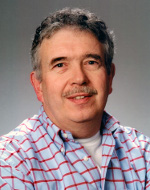 |
|
|
|
| Topic: | |
| Abstract: | |
| Biography: |
|
| Further Information: | http://www.sps.ele.tue.nl/members/F.M.J.Willems/ |
Professor Ph. D. Stan Z. Li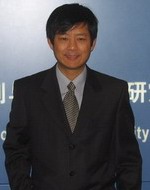 |
|
|
|
| Topic: | |
| Abstract: | |
| Biography: |
|
| Further Information: | http://www.cbsr.ia.ac.cn/users/szli/ |
Professor Pau-Choo (Julia) Chung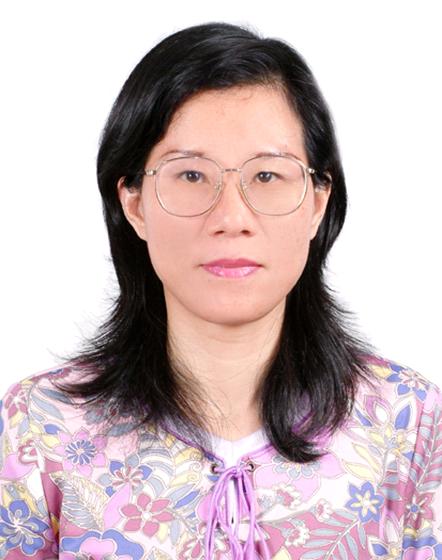 |
|
|
|
| Topic: | Emotional Intelligence with Machine Intelligence |
| Abstract: | Emotion is one biological responding. It plays one crucial roles in motivation, perception, cognition, coping, creativity, attention, planning, reasoning, learning, memory, and decision making. Consequently, the technology for achieving emotional intelligence as well as the development of its applications is crucial in nowadays machine intelligence. The technique of emotional intelligence includes the ability of accurately perceiving the emotion, understanding the meaning of emotion, and based on the emotion facilitating the decision making. It is one of the most powerful elements in building the intelligence of machine understanding human psychology states. In this talk an overview of emotional intelligence will firstly be presented. Followed, we will demonstrate one example on physiological signal based emotion recognition, from which using segmentation to resolve the turbulence on emotion detection will be presented. This talk will also discuss the effect of emotion on attention gathering and an approach for detecting sustained attention from psychological status will be presented. |
| Biography: | Pau-Choo (Julia) Chung received the B.S. and M.S. degrees in electrical engineering from National Cheng Kung University (NCKU), Taiwan, in 1981 and 1983, respectively, and the Ph.D. degree in electrical engineering from Texas Tech University, USA, in 1991. She then joined the Department of Electrical Engineering, National Cheng Kung University (NCKU), Taiwan, and has become a full professor since 1996. She served as the Vice Director, and then the Director, of the Center for Research of E-life Digital Technology, NCKU during 2001-2008. She was also the Director of Electrical Laboratory, NCKU in 2005-2008. She was selected as Distinguished Professor of NCKU. Currently she is the Director of Institute of Computer and Communication Engineering, NCKU, Taiwan. Dr. Chung¡¦s research interests include image/signal analysis and pattern recognition, computational intelligence, and telemedicine. Particularly she applies most of her research results on medical and healthcare applications. She received many awards, such as the annual best paper award in Chinese Journal Radiology 2001, the best paper awards from World Multiconference on Systemics, Cybernetics, and Informatics (SCI) 2001 and International Computer Symposium (ICS) 1998, Acer¡¦s Best Research Award in 1994 and 1995, the best paper awards from the Conference of Computer Vision, Graphics, and Image Processing (CVGIP), in 1993, 1996, 1997, 1999, and 2001, Best Research Young Innovator Award of National Science Council, Taiwan, in 1999. Dr. Chung has served as the program committee member in many international conferences. She is the chair of the IEEE Life Science Systems and Applications Technical Committee (2008 and 2009) of CASS, and the vice chair of Neural Network TC of CIS. Currently she is also serving as the Associate Editor of Journal of Information Science and Engineering, IEEE Transactions on Neural Networks, and Multidimensional Systems and Signal Processing. She served as the Guest Editor of IEEE Transactions on Circuits and Systems-I, a Member on IEEE International Steering Committee, IEEE Asian Pacific Conference on Circuits and Systems. She was the Chair of IEEE Computational Intelligence Society, Tainan Chapter (2005-2006), and the Secretary General of Biomedical Engineering Society of the Republic of China (2005-2006). She was an IEEE Distinguished Lecturer of CASS (2006-2007). She is currently a member in BoG (Board of Governor) of IEEE CAS Society (2007-2009, 2010-2012) and an ADCOM administrative committee member in IEEE CIS Society (2009-2011). She is a member of Phi Tau Phi honor society and an IEEE Fellow. |
| Further Information: | http://www.ee.ncku.edu.tw/nckueechinese/professor/T204-pcchung/T8008039e.htm |
Professor Günter Müller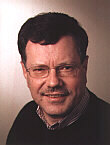 |
|||||||||||||||||||||||||||||||||||||||||||||||
|
|||||||||||||||||||||||||||||||||||||||||||||||
| Topic: | Changing Security Concepts for Service Oriented Computing | ||||||||||||||||||||||||||||||||||||||||||||||
| Abstract: | Classical Security mechanisms guarantee the protection of unwanted access to resources. They are not sufficient to presentday requirements. Security has in absolute terms decreased as all surveys show. Present day computing is service oriented because this form of IT computing prooves to be the most cost effective - given that security concerns can be dealt with. Information and knowledge is in addition to physical and financial products, which must be protected in a classical way. Security comes in at least two flavors: Either the information products are digital and represent an own value or they describe information about events, and find a profil where business or other value can be extracted. In the first case lack of security reduces the request for services and reduces the value of inernet economy. In the second aspect of security information data are a value in itself. Google and its business model are a valid example. Excellent services are offered for private data. This talk discusses potentials, risks and the remedies to fight misus and to discuss the trends and approaches of security with regard to new servivces and IT-Computing models. |
||||||||||||||||||||||||||||||||||||||||||||||
| Biography: |
|
||||||||||||||||||||||||||||||||||||||||||||||
| Further Information: | http://www.telematik.uni-freiburg.de/gm-index.php?l=2 | ||||||||||||||||||||||||||||||||||||||||||||||
Professor Ph. D. Jiwu W. Huang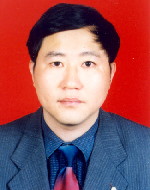 |
|
|
|
| Topic: | Steganography vs. Steganalysis: Progress and Challenge |
| Abstract: | Steganography and steganalysis are active topics in information hiding. Steganography refers to the technology of hiding data into digital media without drawing any suspicion, while steganalysis is the art of detecting the presence of steganography. This talk provides an analysis on steganography and steganalysis for digital images, mainly covering the basic issues and new progress in steganography and steganalysis for images in spatial domain and JPEG compression domain, the challenges that steganography and steganalysis will present, and some possible strategies for improving steganographic security and enhancing steganalytic capability. |
| Biography: |
Dr. Jiwu Huang received his B.S degree in Electronic Engineering from Xidian University, China, in 1982, M.S degree in Electronic Engineering from Tsinghua University, China, in 1987, and Ph.D. in Pattern Recognition and Information System from Institute of Automation, Chinese Academy of Science in 1998. He is currently a professor of the School of Information Science and Technology, Sun Yat-Sen University, P. R. China. His current research interests include multimedia security and multimedia signal processing, focusing on watermarking, data hiding, and forensics. In his research areas, he received 5 grants from NSF of China and more than 15 other grants from other funding agencies. He has published 1 book, 3 book chapters and more than 100 papers as co-author in recent year. He holds 18 China invention patents on multimedia security, with about 20 pending. He received the first-grade award in science research from the National Ministry of Education in 2004. He and his students won the best student paper award from 8th International Workshop on Digital Watermarking (Pusan, Korea) in 2008. Dr. Huang serves as a member of Multimedia Systems and Applications Technical Committee, CASS, IEEE, from 2002. He founded the Guangzhou chapter of CASS, IEEE, in 2008 and serve as the chair currently. He is an associate editor of LNCS Transactions on Data Hiding and Multimedia Security (Springer-Verlag), an associate editor of EUROSIP Journal on Information Security. He served as the president, Guangdong Association of Image and Graphics, P. R. China, from 2001 to 2009. |